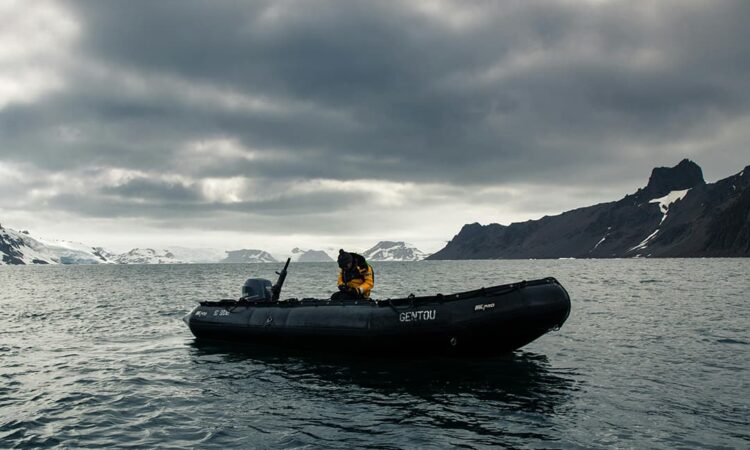The vast, icy expanses of the polar regions have long drawn explorers eager to conquer these final frontiers of Earth. Among these explorers, three names stand out for their bravery, determination, and endurance in the face of unimaginable hardships: Robert Falcon Scott, Roald Amundsen, and Ernest Shackleton. Their journeys to the Antarctic were not only remarkable feats of exploration but also stories of ambition, rivalry, and survival. Through their expeditions, these men left an enduring legacy, inspiring generations fascinated by the challenges and beauty of the polar wilderness. Here, we delve into the epic journeys of Scott, Amundsen, and Shackleton, including the lessons and legacies they left behind.
Robert Falcon Scott: The Tragic Hero
Robert Falcon Scott, a British naval officer, first journeyed to Antarctica in 1901 on the Discovery Expedition, an ambitious mission to explore the continent and gather scientific data. However, it was Scott’s second expedition, known as the Terra Nova Expedition (1910–1913), that solidified his place in history. Scott’s primary goal was to reach the South Pole, but he faced fierce competition from Norwegian explorer Roald Amundsen, who was also determined to be the first to reach this remote point.
Despite the grueling conditions, Scott and his team pressed on, trekking through the harsh Antarctic landscape. Tragically, they reached the South Pole on January 17, 1912, only to discover that Amundsen had beaten them there by just over a month. Disheartened and exhausted, Scott and his team faced extreme weather and dwindling supplies on their return journey. One by one, they succumbed to the freezing conditions. Scott’s final diary entries, found next to his frozen body, reveal his unwavering resolve and his dedication to his men and mission. The Terra Nova Expedition became a story of tragic heroism, and Scott’s legacy endures as a symbol of courage and sacrifice.
Roald Amundsen: The Master of Polar Exploration
Roald Amundsen, a Norwegian explorer, is often remembered as one of the most skilled polar explorers of all time. Amundsen’s strategic planning, mastery of survival techniques, and willingness to adapt were instrumental in his success. Unlike Scott, Amundsen was prepared to embrace the survival tactics of the Inuit people, learning to dress in furs, use sled dogs, and live off the land. His willingness to learn from indigenous Arctic communities gave him a crucial advantage over others who attempted similar feats.
In 1911, Amundsen made his move to reach the South Pole as part of his carefully planned expedition aboard the Fram. His team set out from the Bay of Whales, taking a direct route to the Pole that saved them valuable time and energy. On December 14, 1911, Amundsen and his team became the first humans to reach the South Pole, planting the Norwegian flag and leaving behind supplies for Scott in case he arrived later. Amundsen’s success is attributed to his meticulous planning, resourcefulness, and respect for the environment—a stark contrast to Scott’s tragic fate.
Amundsen’s achievements extended beyond the South Pole. Later, in 1926, he also became the first person to lead an expedition to the North Pole, cementing his reputation as one of history’s greatest explorers. Through his disciplined approach and practical adaptability, Amundsen demonstrated the importance of preparation, humility, and respect for the natural elements.
Ernest Shackleton: The Relentless Survivor
Ernest Shackleton, an Anglo-Irish explorer, was known not just for his expeditions but for his incredible feats of leadership and survival. Shackleton’s first Antarctic expedition took place in 1901, where he accompanied Robert Falcon Scott on the Discovery Expedition. However, his most famous journey was the Endurance Expedition (1914–1917), which aimed to cross the Antarctic continent from coast to coast. Although the expedition did not achieve its intended goal, it became one of the most extraordinary survival stories in polar history.
The Endurance was trapped and eventually crushed by pack ice in the Weddell Sea, forcing Shackleton and his crew to camp on drifting ice floes. With limited supplies and the nearest rescue over 800 miles away, Shackleton’s leadership and determination were critical to his crew’s survival. After months on the ice, Shackleton and a small team navigated the treacherous waters of the Southern Ocean in a lifeboat, reaching the remote island of South Georgia. From there, Shackleton arranged a rescue for the rest of his men, all of whom survived against impossible odds.
Shackleton’s resilience, loyalty to his men, and resourcefulness made him a legend. His ability to lead under extreme pressure has since become a model for leadership studies worldwide. Shackleton’s legacy remains a testament to the human spirit and the power of perseverance, as well as a reminder of the harshness and unpredictability of the Antarctic environment.
The Legacy of the Polar Explorers
The legacies of Scott, Amundsen, and Shackleton extend far beyond their journeys. Each explorer left a unique mark on the history of polar exploration, shaping our understanding of the Antarctic and pushing the boundaries of human endurance. Scott’s determination and tragic end embody the spirit of sacrifice; Amundsen’s calculated success reflects the importance of preparation and respect for the environment; and Shackleton’s leadership in the face of adversity is a powerful reminder of resilience.
These explorers’ journeys also remind us of the unexplored and unknown regions that remain within Antarctica. From ancient ice formations to volcanic islands like Peter I Island, Antarctica continues to be a place that captures human curiosity and tests the limits of exploration. Today, scientists and adventurers alike continue to probe the secrets of the continent, inspired by the courage and determination of these early pioneers.
While modern technology has transformed polar exploration, making it safer and more accessible, the journeys of Scott, Amundsen, and Shackleton remain timeless tales of ambition, courage, and the indomitable human spirit. Their stories continue to inspire, as we marvel at their courage to confront the unknown and pay homage to their incredible feats in the face of unimaginable hardship.
